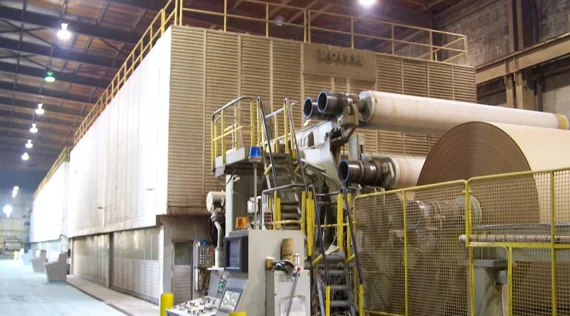German Plastics Firm Works with Chinese Carmakers to Recycle Parts
Plastic Recycling | 2024-07-23 12:01:18
Global governments aim to finalise the treaty’s negotiations which began in 2022 and sign a legally binding agreement late this year, to drive action for ending plastic pollution.
SEATTLE (Scrap Monster): German plastic materials maker Covestro is stepping up efforts to collaborate with vehicle makers and recycling partners to reuse plastic car parts in China to reduce the carbon and resource footprint of its products.
Through a pilot scheme initiated by German development agency Deutsche Gesellschaft für Internationale Zusammenarbeit (GIZ), Covestro recently joined the carmakers Volkswagen and Nio, and Shenzhen-based recycling company GEM to work on methods to process and recycle waste polycarbonate components such as headlights that have reached the end of their life.
The materials will be reused for interior vehicle applications such as instrument panel trim and exterior applications like spoilers to lower wind resistance and lighting bezels – the plastic rims covering car lights – said Guido Naberfeld, senior vice-president, head of sales and market development mobility at Covestro.
“The purpose of the pilot is to examine and address the pain points of the recycling process in the automotive value chain, which will pave the way for future scale-up considering the impact of upcoming regulatory demands like the European end-of-life vehicle directive under review,” he said.
Last year, the European Commission proposed making it mandatory for a quarter of the plastics used in new vehicles to come from recycled materials by 2030, of which 25 per cent must come from vehicles at the end of their lives.
Over 100 used vehicles are targeted in the initial stage of the pilot, which aims to save resources and reduce greenhouse gases emitted during the production and disposal of raw materials, Naberfeld said.
The global plastic recycling value chain remains immature, as the lack of a clear pathway to profitability for participants has led to slow technology adoption and investment in waste recycling infrastructure, according to a report published earlier this month by Wood Mackenzie.
“The circular economy model has not made the impact many plastics industry observers predicted when it was first mooted, but there are some exciting initiatives under way that could change that,” said Guy Bailey, vice-president of oils and chemicals at the energy and industrial commodities consultancy.
“The successful negotiation and introduction of the United Nations plastic treaty is a necessary starting point, but the adoption of new business models to drive coordination across the value chain is the key to real change.”
Global governments aim to finalise the treaty’s negotiations which began in 2022 and sign a legally binding agreement late this year, to drive action for ending plastic pollution.
Investors need to be encouraged to acknowledge that the long-term benefits of being a first-mover in building materials recycling into their business models will more than offset any short-term profit reduction, Bailey said.
In 2022, Covestro announced a target to become climate-neutral in terms of emissions from its own production and purchased energy sources by 2035. In February this year, it set another goal to and slash total emissions attributed to its supply chain by 30 per cent by 2035 compared to 2021. It aims to achieve full supply chain carbon neutrality by 2050.
Decarbonisation of plastics manufacturing is important for global climate mitigation, as the production of plastics from fossil fuels contributes around 5 per cent of global greenhouse gas emissions, according to the United Nations.
Global annual emissions from plastic production and incineration could surge from around one billion tonnes of carbon dioxide equivalent this year to 2.5 billion tonnes by 2050, the Center for International Environmental Law has projected.
In another initiative last month, Covestro signed a recycling cooperation agreement under which the Finnish oil refiner and low-carbon fuel and plastics maker Neste would liquefy discarded car tires into a raw material for plastics manufacturing and supply it to Borealis, an Austrian company, to be turned into base chemicals.
Covestro will then use them to produce polycarbonate plastics, which will be bought by its customers for making car parts such as headlamps and radiator grilles. Its customers can make recycled content claims in their products through a so-called mass-balance digitalised bookkeeping exercise, which can be verified by third-party certifiers.
The collaboration model will first be rolled out in Europe, and then expanded to other markets including China over time, as local demand and raw materials availability increase, Naberfeld said.
China, as the current leader in electric vehicle production and with a goal to achieve carbon neutrality by 2060, is likely to implement regulations similar to the European Council’s proposal to mandate recycled plastics in vehicles to address environmental concerns and bolster auto industry competitiveness, he added.
Courtesy: www.scmp.com
 By
By 